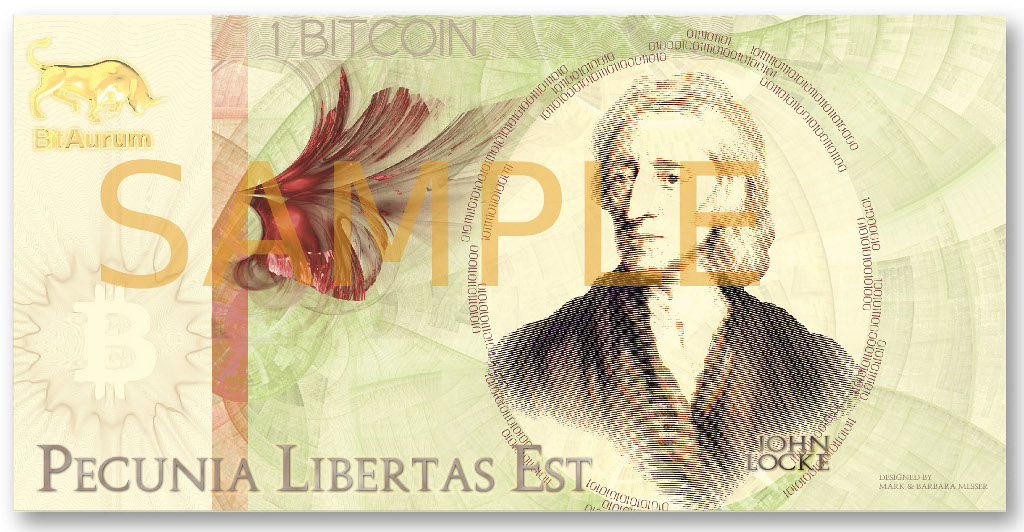At the moment the website serves as a blog and awaits for renewal
-
in Bitcoin
-
on 14 January 2020
WHAT IS BITCOIN
Bitcoin is a peer-to-peer payment system and digital currency introduced as open source software in 2009 by pseudonymous developer Satoshi Nakamoto. It is a cryptocurrency, so-called because it uses cryptography to control the creation and transfer of money. Users send payments by broadcasting digitally signed messages to the network.
Participants known as miners verify and timestamp transactions into a shared public database called the block chain, for which they are rewarded with transaction fees and newly minted bitcoins. Conventionally "Bitcoin" capitalized refers to the technology and network whereas "bitcoins" lowercase refers to the currency itself. Bitcoins can be obtained by mining or in exchange for products, services, or other currencies.
Commercial use of Bitcoin, illicit or otherwise, is currently small compared to its use by speculators, which hasfueled price volatility. Bitcoin as a form of payment for products and services has seen growth, however, and merchants have an incentive to accept the currency because transaction fees are lower than the 2–3% typically imposed by credit card processors..Users send and receive payments using client software on a personal computer, mobile device or web application.
Transactions do not explicitly identify the payer and payee by name. Instead, a Bitcoin transaction transfers ownership from one Bitcoin address to another. Transactions are confirmed by the network using a proof-of-work system called mining, in which often specialized computers append blocks of transactions to a shared public record called the block chain. Solving the cryptographic puzzle required to append a block currently carries a reward of 25 bitcoins plus fees included in transactions in the block. The puzzle difficulty self-adjusts as necessary to achieve a block creation rate of one approximately every ten minutes.
SOFTWARE
Bitcoin client software, or simply Bitcoin clients, allow a user to send and receive bitcoin transactions. The first Bitcoin software was released in 2009 by Satoshi Nakamoto as open source code. The "Satoshi client", Bitcoin-Qt, has since been maintained and enhanced by a group of core developers and other contributors. Bitcoin-Qt can be used as a desktop client for regular payments or as a server utility for merchants and other payment services. Historically Bitcoin-Qt also supported bitcoin mining, however this feature has been redacted due to the relative inefficiency of performing mining computations on a CPU. Bitcoin-Qt is sometimes referred to as the "reference client" because it serves to define the Bitcoin protocol and acts as a reference standard for other implementations.
Bitcoin clients have been implemented in several programming languages for personal computers, mobile devices, and as web applications. At the most basic a client generates and stores private keys and communicates with peers on the Bitcoin network. When making a purchase with a mobile device, the use of QR codes to simplify transactions is ubiquitous. There are also now several server software implementations of the Bitcoin protocol.So-called "full client" nodes on the network validate transactions and blocks they receive and relay them to connected peers.
WALLETS

project made by M.E.S.S.E.Rartstudio
Bitcoin uses the ECDSA implementation of public-key cryptography, in which pairs of cryptographic keys, one public and one private, are generated. A collection of keys is called a wallet. Note that sometimes the term wallet is used to mean client software in the sense of digital wallet. Bitcoin transaction transfers ownership to a new address, an alphanumeric string of the form 1FfmbHfnpaZjKFvyi1okTjJJusN455paPH derived from public keys by application of a hash function and encoding scheme. The corresponding private keys act as a safeguard; a valid payment message from an address must contain the associated public key and a digital signature proving possession of the associated private key. Because anyone with a private key can spend all of the bitcoins sent to the corresponding address, the essence of Bitcoin security is protection of private keys.
Theft of bitcoins has occurred on numerous occasions. The practical day-to-day security of Bitcoin wallets remains an on-going concern. Risk of theft can be reduced by generating keys offline on an uncompromised computer and saving them on external storage or paper printouts. Various vendors produce physical bitcoins, collectables that store a private key on paper, metal, wood, or plastic. Images of physical bitcoins are ubiquitous in media coverage of Bitcoin.
BLOCK CHAIN
Integral to Bitcoin is a public database and sequential record of all transactions, known as the block chain, that records current bitcoin ownership as well as at all points in the past. By keeping a record of all transactions, the block chain prevents double-spending. Those that maintain the block chain are called miners and are rewarded with newly created bitcoins as well as transaction fees. Payment processing work done by miners verifies each transaction as valid and adds it to the block chain. Bitcoin payment processing fees are optional and generally substantially lower than those of credit cards or money transfers. Currently, doing the work of payment processing is rewarded with newly created bitcoins, but this reward is halved every few years, eventually being phased out once the Bitcoin ceiling of 21 million units is reached. Payment processing will then be solely incentivized by transaction fees. Today, transactions that pay a fee may be processed more quickly.
Read: http://en.wikipedia.org/wiki/Bitcoin
If you are beginner to Bitcoin read "A beginner's guide to bitcoin" http://www.coindesk.com/information/
If you want to learn more read "Bitcoin step by step" by Michael Caughey http://www.amazon.com/gp/product/B00A1CUQQU/ref=as_li_qf_sp_asin_il_tl?ie=UTF8&camp=1789&creative=9325&creativeASIN=B00A1CUQQU&linkCode=as2&tag=btcgeek-20
or "BITCOIN MADE EASY" by Kris Rivenburgh http://www.amazon.com/Bitcoin-Made-Easy-Easiest-Beginners-ebook/dp/B00GV722JI/ref=pd_sim_kstore_4
If you want to interact with the community join bitcointalk.org
If you still can’t figure out what a bitcoin is, read the article "Explain Bitcoin like I'm five" https://medium.com/future-of-currency/73b4257ac833
If you want to learn how to accept Bitcoin for small businesses read here
https://en.bitcoin.it/wiki/How_to_accept_Bitcoin,_for_small_businesses

by M.E.S.S.E.R artstudio
